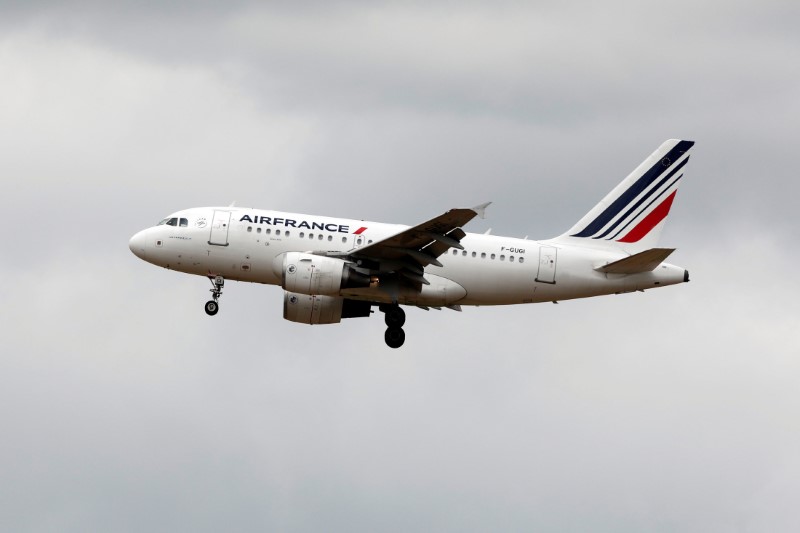By Victoria Bryan and Alana Wise
BERLIN/NEW YORK (Reuters) - A transatlantic alliance between three global airlines will shore up their position in the lucrative UK-U.S. market, shielding them from low-cost rivals and the uncertainties of Britain's exit from the European Union.
Delta Air Lines (N:DAL), Air France-KLM (PA:AIRF) and Virgin Atlantic (VA.UL) have announced plans for a 15-year partnership on routes between Europe and the United States and equity deals which will see them take stakes in each other.
The joint venture, announced on Thursday, will see the three carriers share their profits on transatlantic routes. It will give Air France-KLM greater access to the Britain-U.S. market - among the most profitable - while the Franco-Dutch group's short-haul European flights could bring more customers to Virgin's U.S.-bound flights from London.
The ability to offer customers a host of extra flights could give U.S. carrier Delta an edge against domestic rivals including American Airlines (O:AAL) and United Airlines (N:UAL).
The new alliance also provides the partners with a hedge against Brexit in the business travelers market, should Britain's EU departure lead to companies moving to the continent, and a consequent drop in air traffic from London.
Global banks have already said they could move thousands of jobs out of Britain to prepare for Brexit, while two major EU regulators are seeking new homes.
"This is a play on Delta's part to protect itself as Brexit unwinds should London lose traffic," said Atmosphere Research Group analyst Henry Harteveldt.
The partnership, expected to come into effect in 2018, will also strengthen the three big players' positions, at a time when low-cost entrants Norwegian Air Shuttle (OL:NWC) and Wow Air are shaking up the U.S.-Europe market - though their share of flights remains small.
It will also allow for better use of the airlines' London Heathrow slots, analysts said, allowing them to free up extra short-haul capacity and move it to long-haul routes.
'SKIN IN THE GAME'
The partnership, which is subject to regulatory approval, would combine two existing and overlapping transatlantic joint-ventures, supported by equity deals worth $1 billion.
Willie Walsh, CEO of rival airline group IAG (L:ICAG), said Air France-KLM's investment in Virgin Atlantic - it plans to take a 31 percent stake - could give it a bigger say in how Britain's aviation landscape looks post-Brexit.
"It probably represents a positive in terms of the Air France position in what the rules should be after Brexit ... they have skin in the game," he told analysts on Friday.
Most of the transatlantic market is controlled by joint ventures involving global airline heavyweights.
The new alliance would have about a 27 percent share of transatlantic flights, ahead of the 24 and 22 percent for the other two rival groupings. See graphic: http://tmsnrt.rs/2h8wLx0
Walsh declined to comment further on what the impact would be on IAG's own transatlantic partnership with American Airlines. He said, however, he remained positive on the outlook for the transatlantic market despite the recent increased competition.
It is not known which ownership rules will apply after Brexit, and whether Britain will remain part of the single European aviation market or the EU-U.S. Open Skies pact and analysts expect carriers to look for creative solutions.
Air France-KLM said on Friday that it had agreed an insurance plan for ownership of Virgin Atlantic, which would see Virgin Group, whose stake is due to drop to 20 percent, regaining a majority share should the carrier need to be UK-owned after Brexit.

"In terms of influence in the important Heathrow and North Atlantic market this ticks all the boxes, and with (Virgin Group boss) Richard Branson moving to a minority position it will allow potentially a realignment of usage of Virgin's Heathrow slot portfolio," consultant John Strickland said.